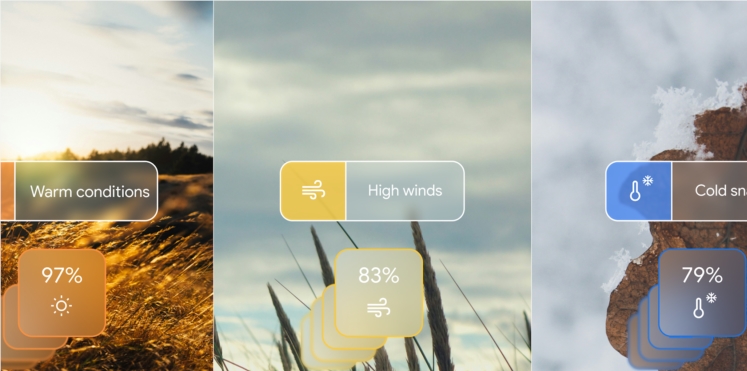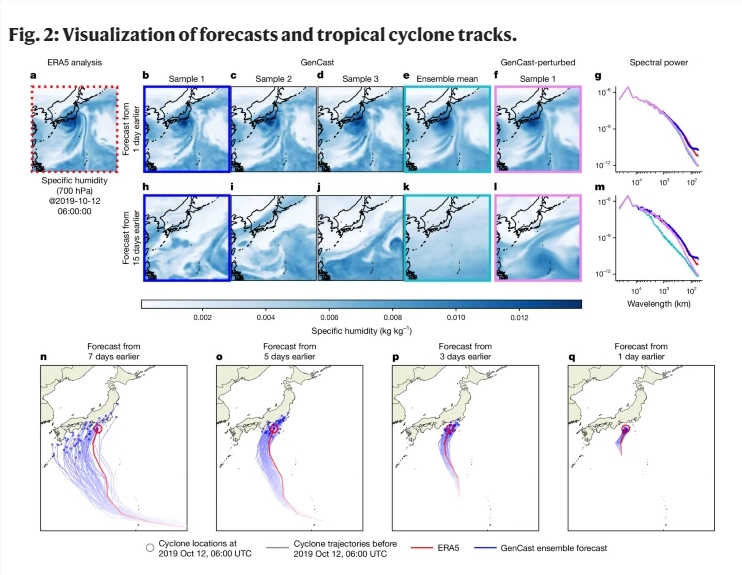Accurate weather forecasting is vital to human society, affecting our daily lives, economic development and our ability to cope with climate change. Although traditional numerical weather prediction models have made progress, their accuracy and efficiency still have limitations, especially in long-term prediction and extreme weather event prediction. Therefore, it has become an urgent need to explore more efficient and accurate weather forecasting methods.
Weather forecasting has always been an art of competition between humans and nature. From deciding whether to bring an umbrella, to marshalling for renewable energy, to responding to extreme weather, our desire for accurate weather information never stops. However, traditional weather forecasting is always accompanied by uncertainty, which stems from the limitations of our observations of atmospheric systems and the inherent limitations of prediction models.
Traditional numerical weather prediction (NWP) has long relied on complex equations of atmospheric dynamics in an attempt to map current weather conditions into the future. Still, small initial errors tend to quickly amplify, making long-term predictions extremely difficult. The Ensemble Forecast System (ENS) of the European Center for Medium-Range Weather Forecasts (ECMWF) was once regarded as the pinnacle of this field, but it still faces challenges such as slow operation and forecast errors.

Against this background, artificial intelligence is quietly changing the rules of the game. An innovative probabilistic weather model called GenCast emerged at the historic moment, bringing revolutionary breakthroughs to weather forecasting. This machine learning-based system can generate a 15-day global weather forecast in just 8 minutes by training on decades of meteorological data, with impressive accuracy.
What makes GenCast unique is its probabilistic modeling approach. Instead of traditional models giving a single forecast, it is able to generate multiple possible weather scenarios and quantify the probability of each scenario occurring. This approach is particularly useful for extreme weather forecasting, such as tropical cyclone track tracking and wind energy production assessment. In comparison tests, GenCast surpassed ENS on 97.2% of targets, demonstrating impressive performance.

Its core technology is derived from the conditional diffusion model, an advanced generative machine learning method. By gradually refining meteorological conditions and introducing random noise, GenCast is able to simulate complex weather systems and generate realistic and diverse forecast results. Actual data verification in 2019 further confirmed its excellent performance.
What does GenCast mean for various industries that rely on weather predictions? It means more accurate risk assessment, more effective resource allocation, and better prevention of natural disasters. From agriculture to energy, transportation to emergency management, accurate weather prediction will bring huge economic and social value.
However, technological progress never stops. GenCast marks an important milestone in the field of weather prediction. It not only demonstrates the potential of artificial intelligence in modeling complex systems, but also provides us with a powerful tool to combat climate change.
In a world filled with uncertainty, GenCast provides us with a window into future weather possibilities. It reminds us that in the face of nature, we are no longer passive recipients, but participants who can actively understand and predict.
Paper: https://www.nature.com/articles/s41586-024-08252-9
The emergence of GenCast marks a major breakthrough of artificial intelligence in the field of weather forecasting, providing new possibilities for more accurate and efficient weather forecasting, and also providing new weapons for mankind to deal with the challenge of climate change. In the future, with the continuous development of technology, we can expect more accurate and longer-term weather forecasts to better serve human society.